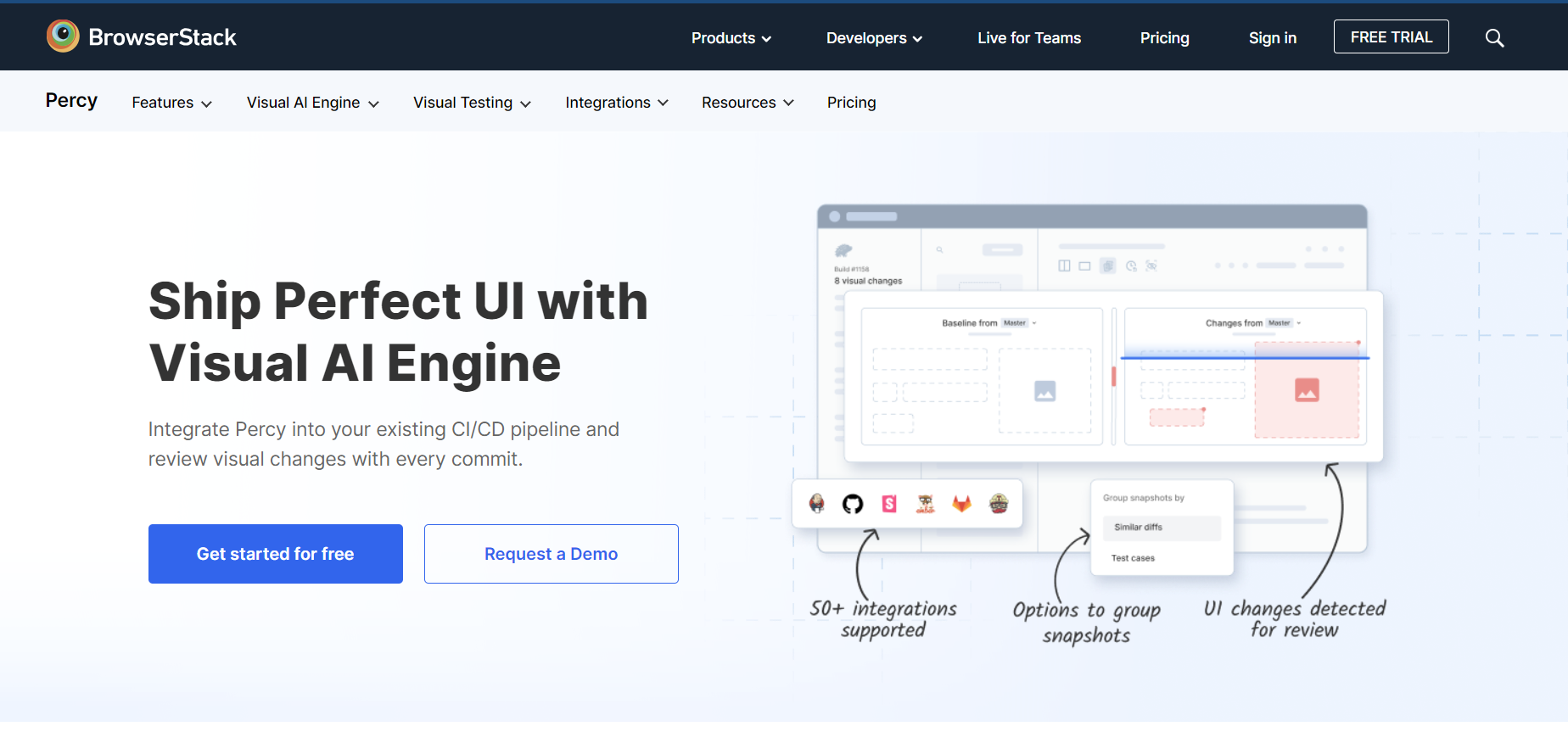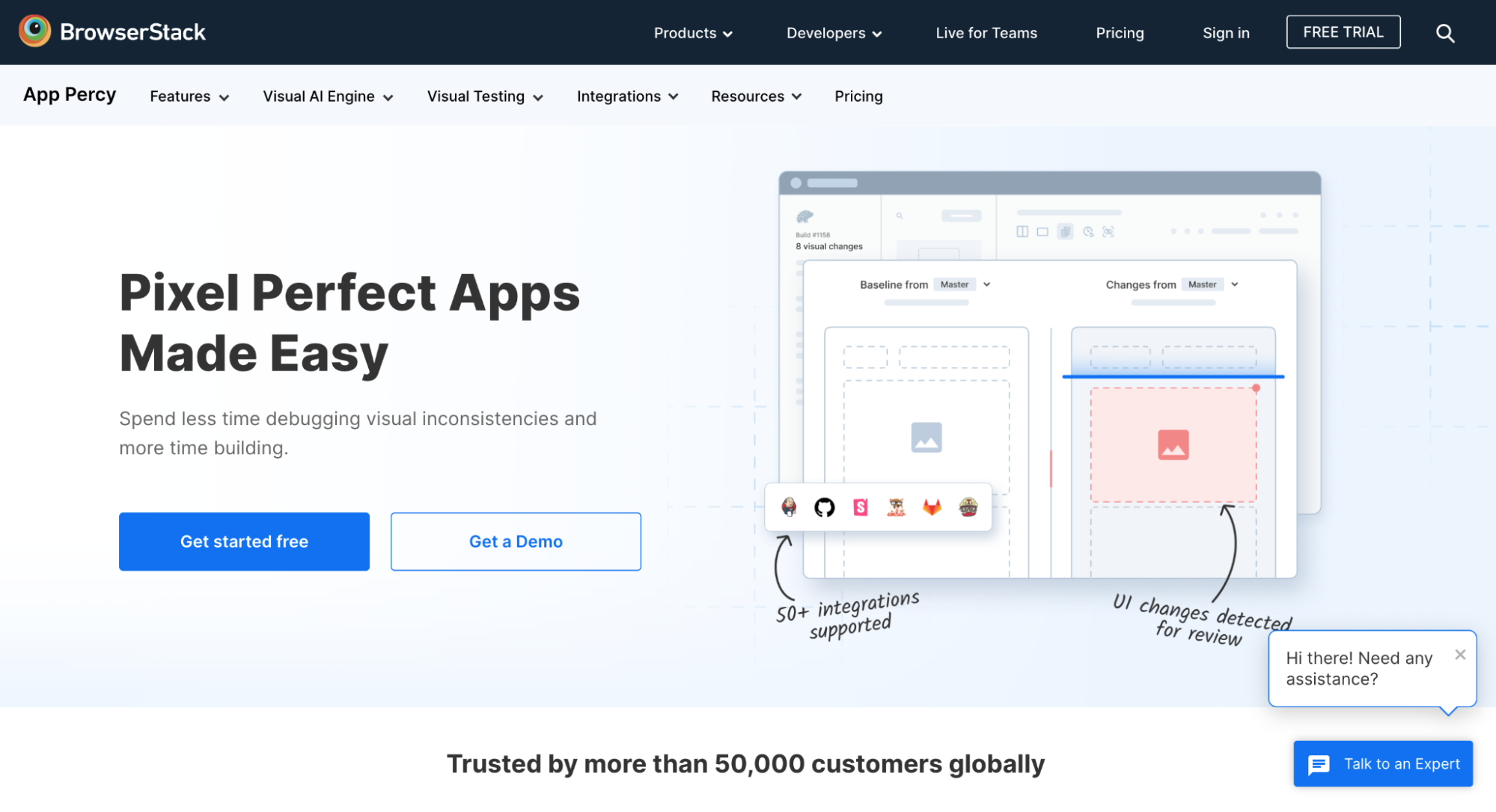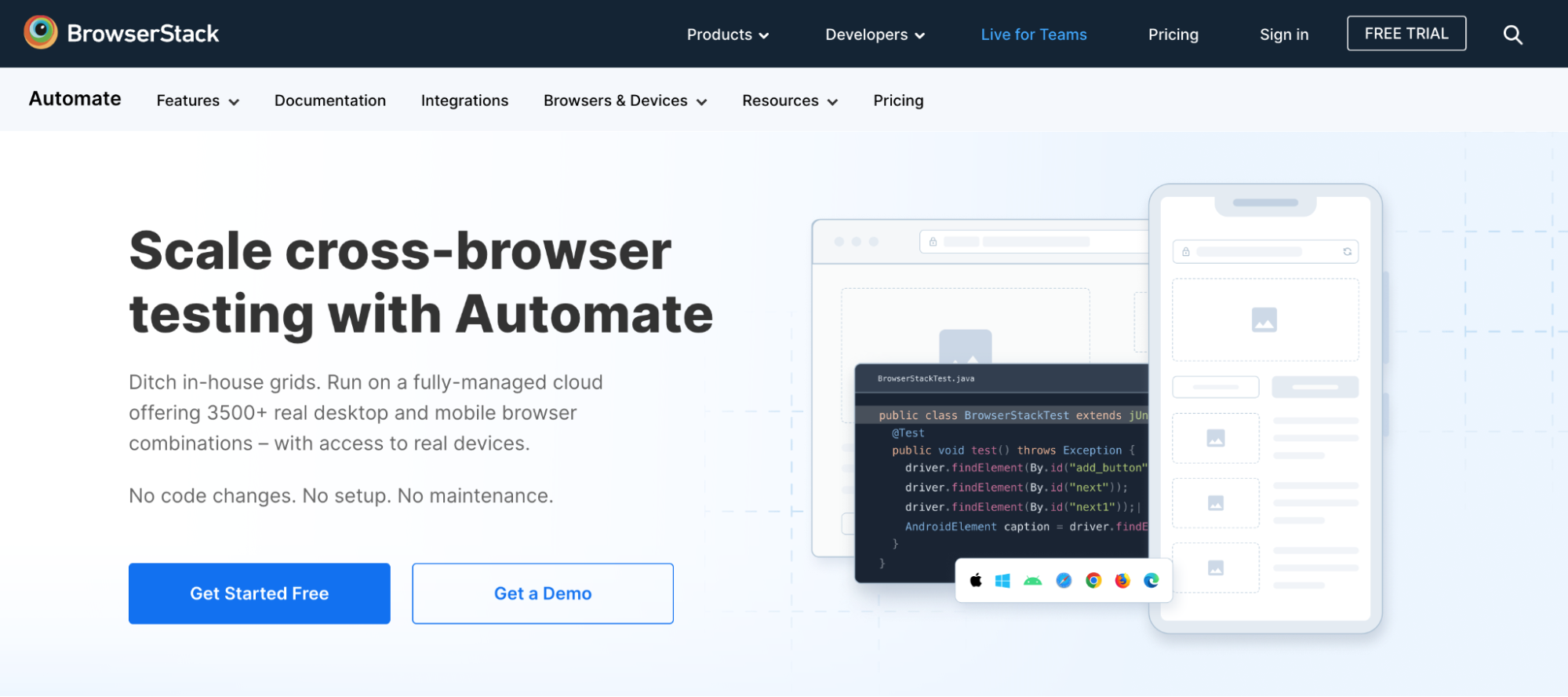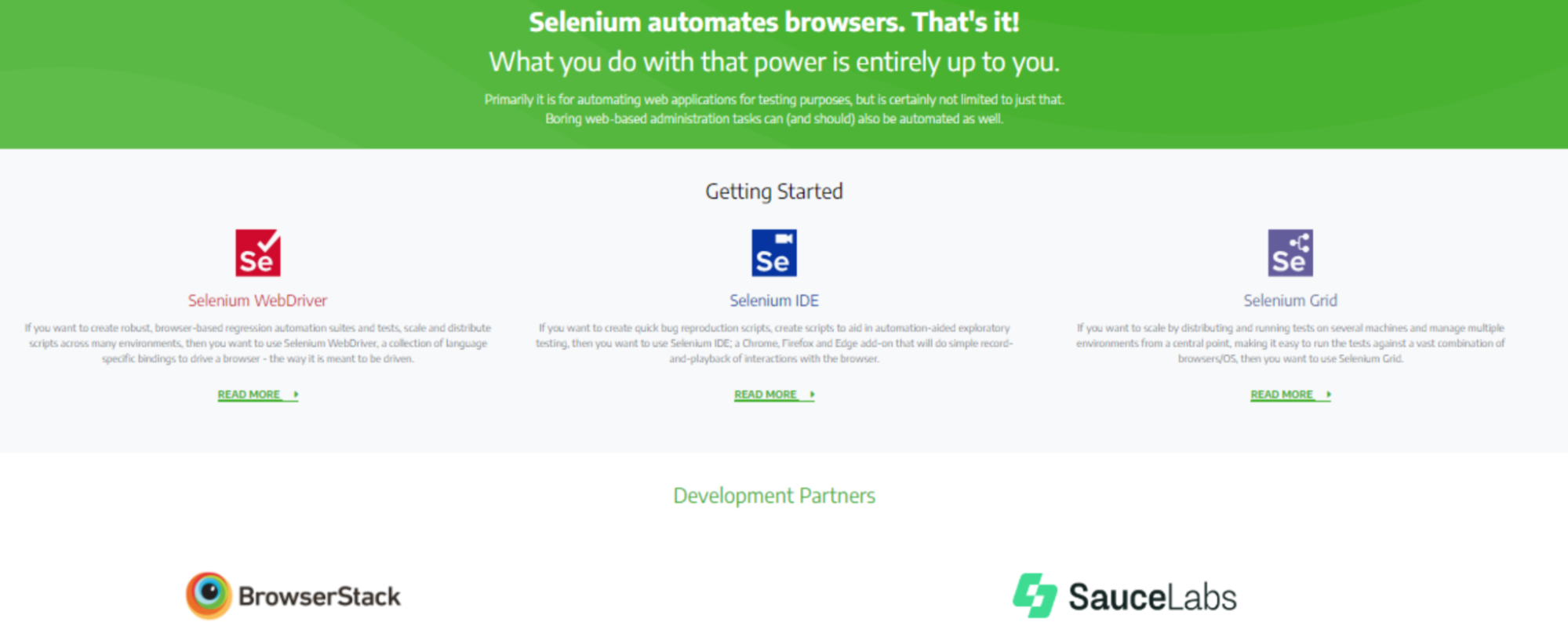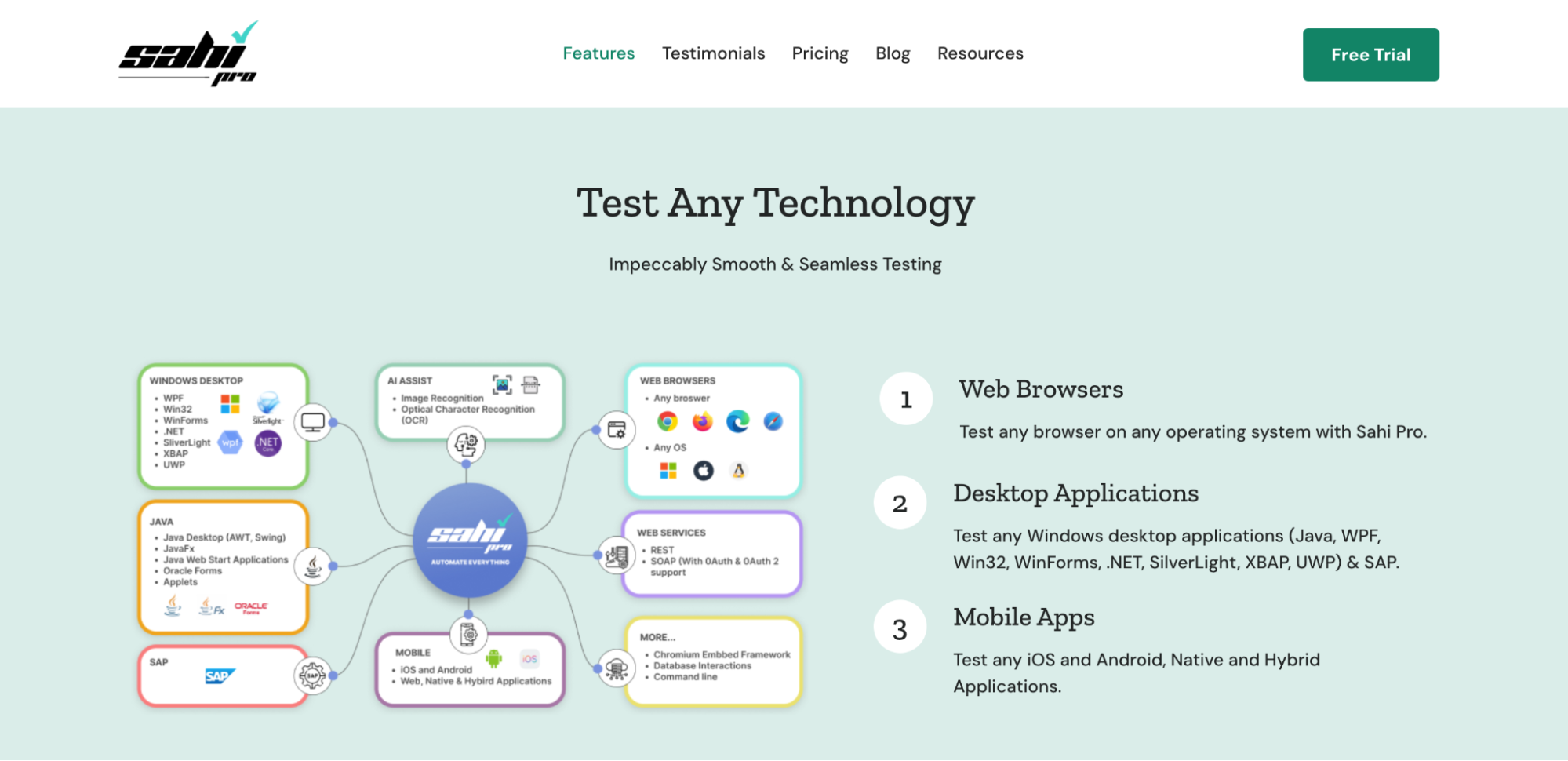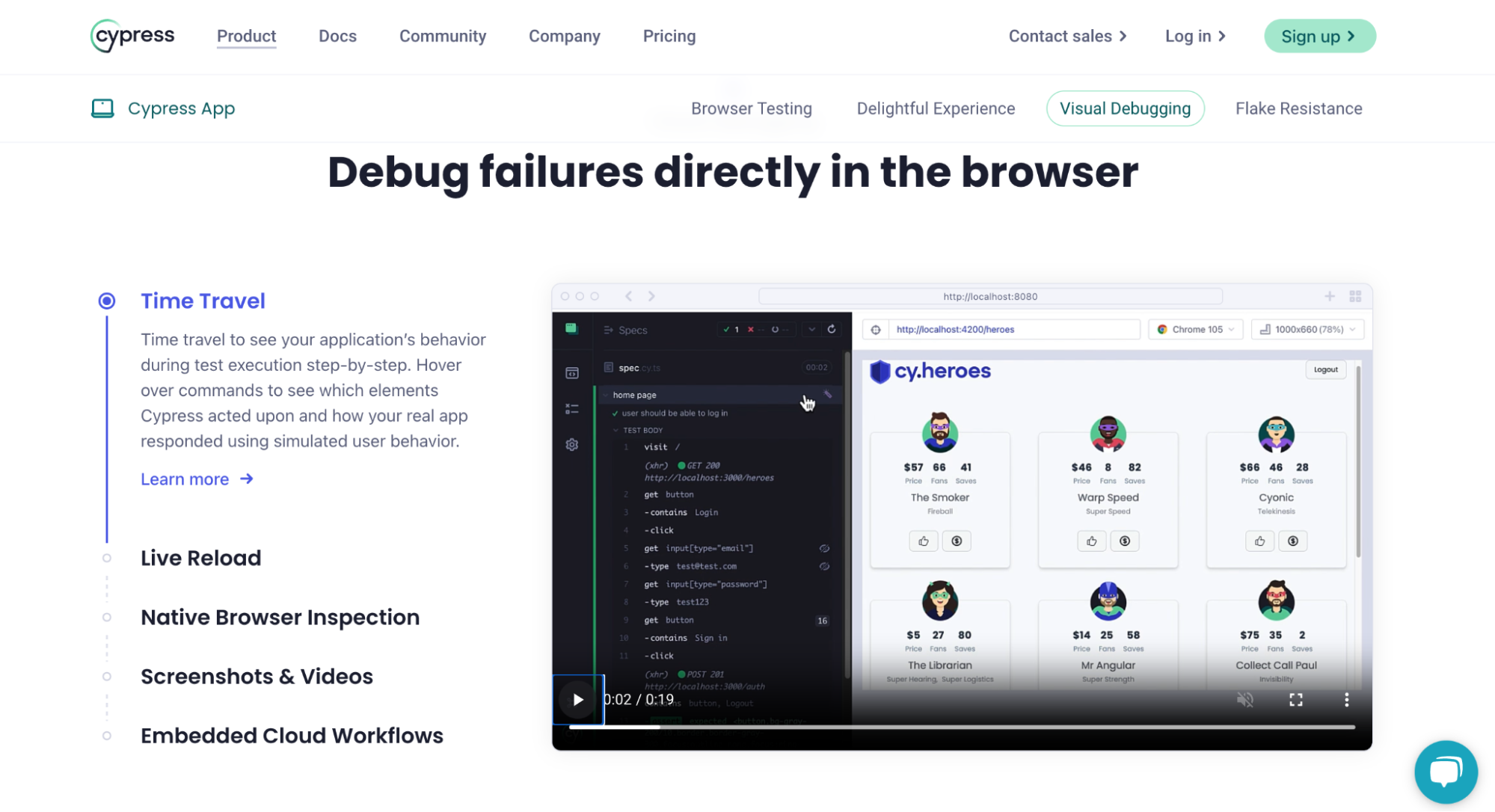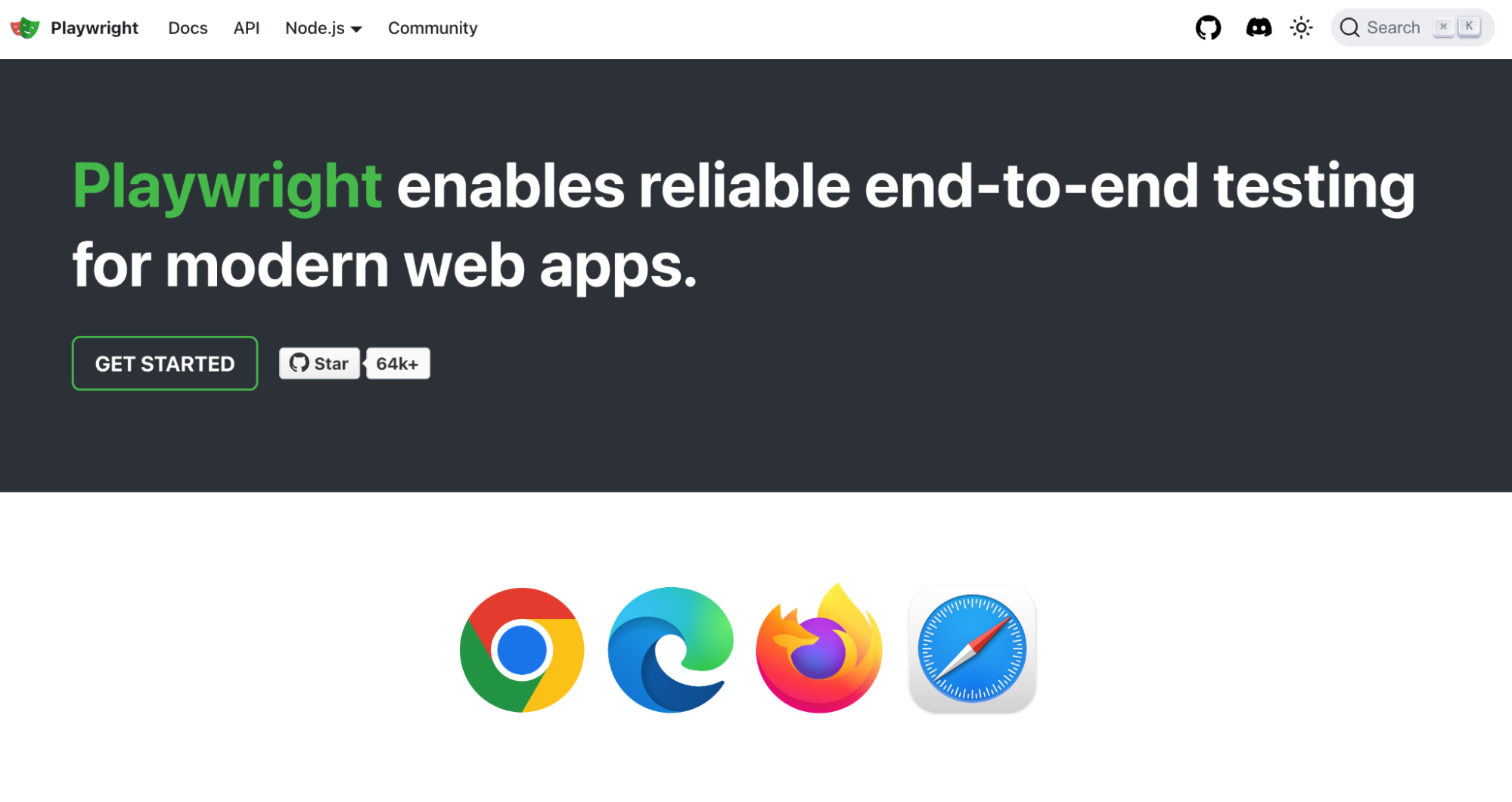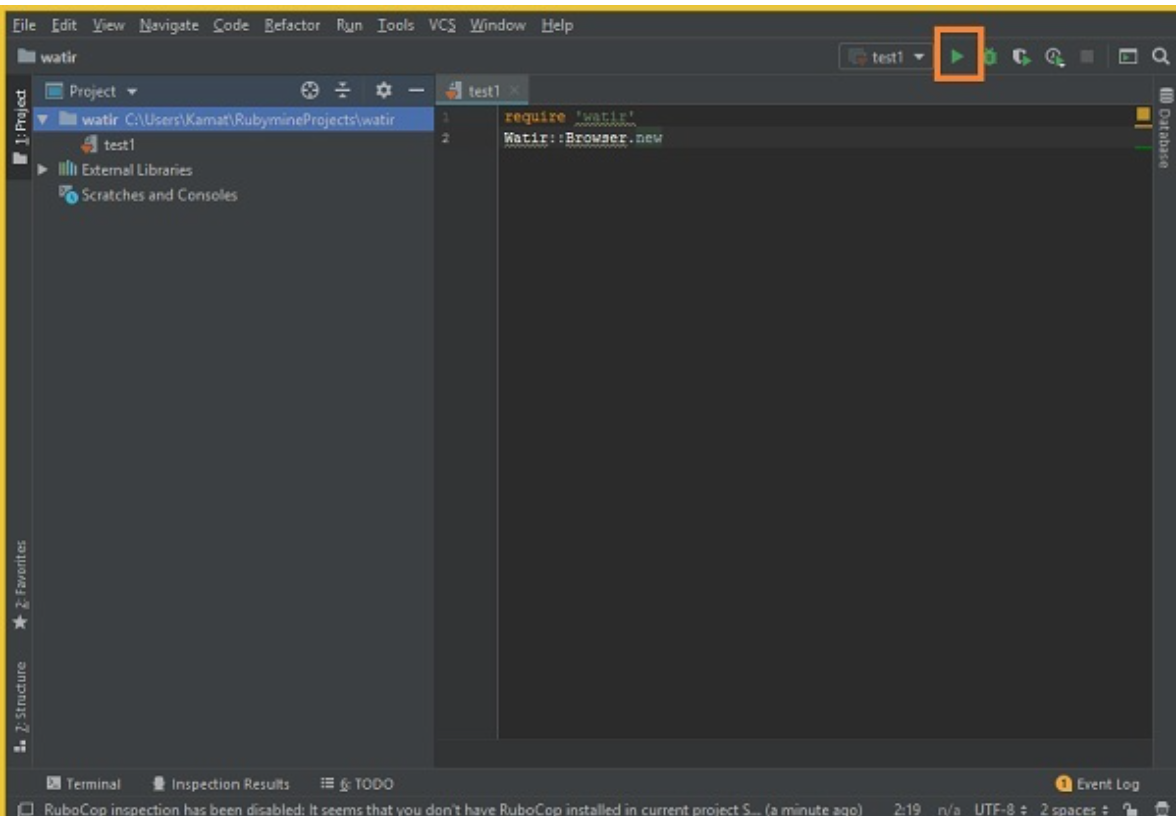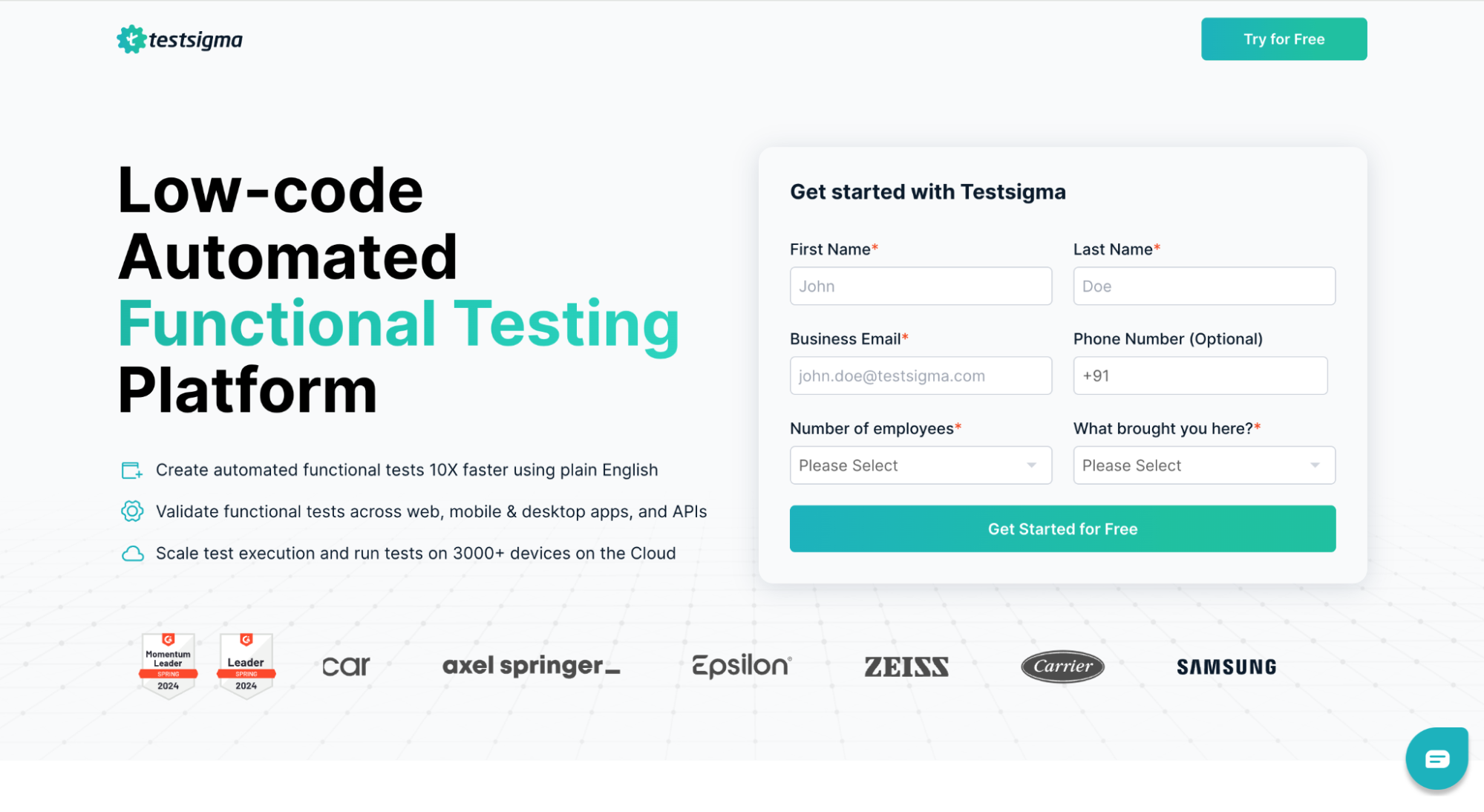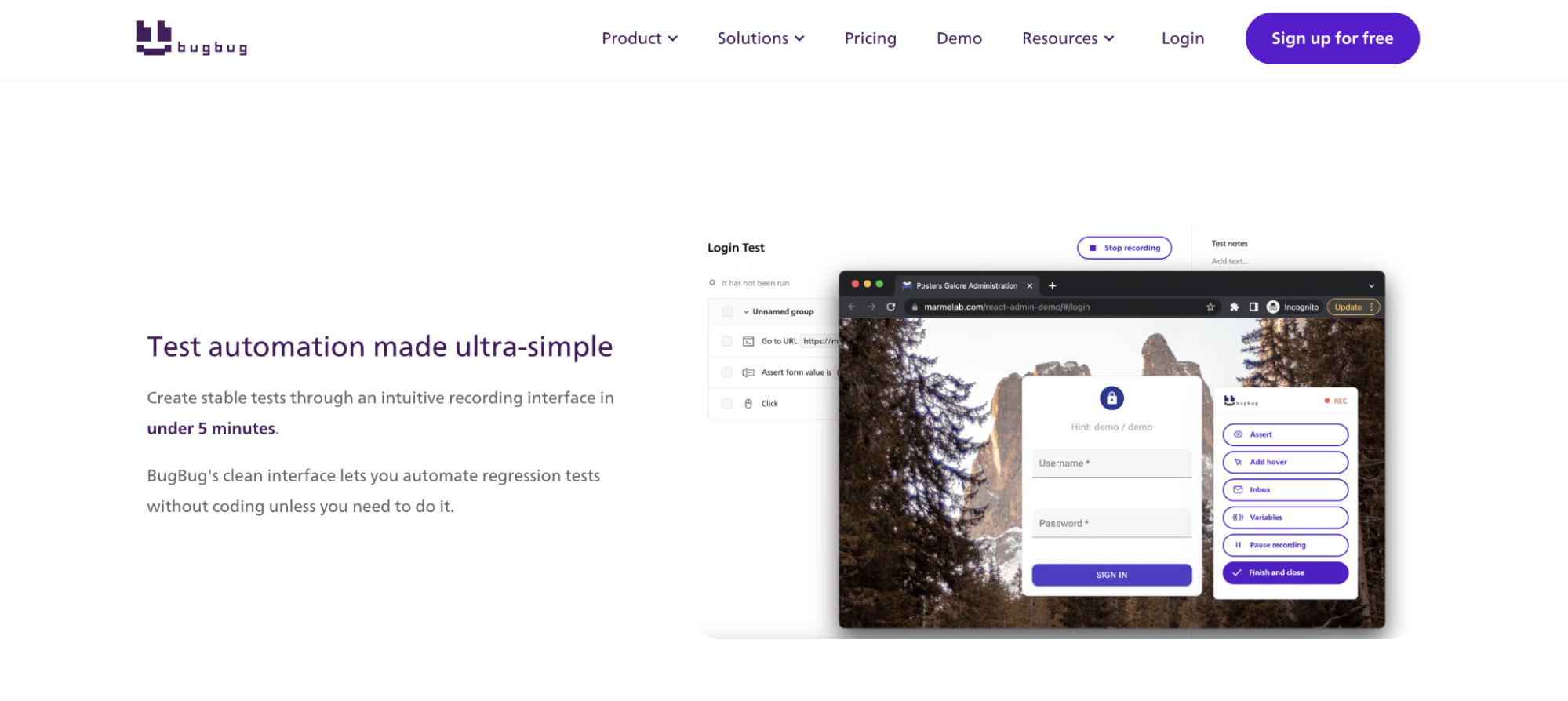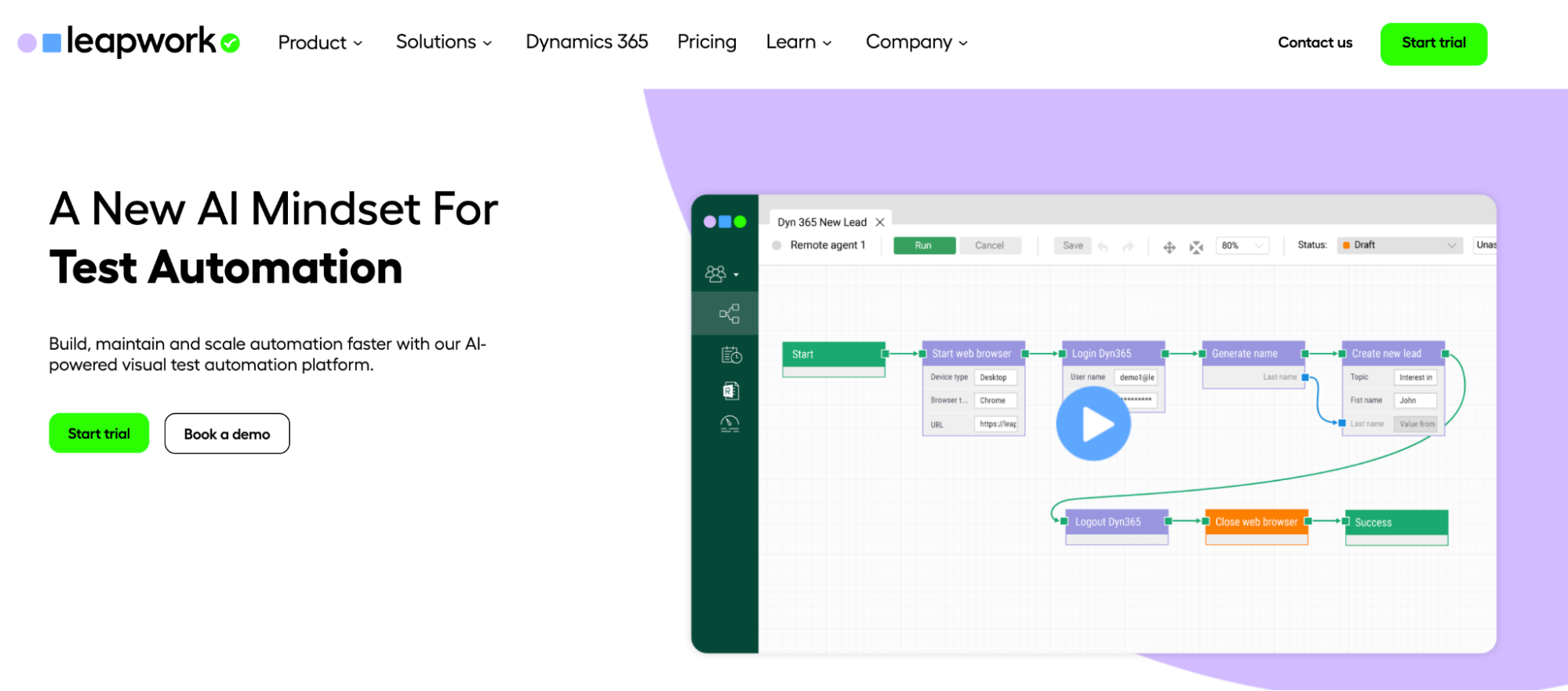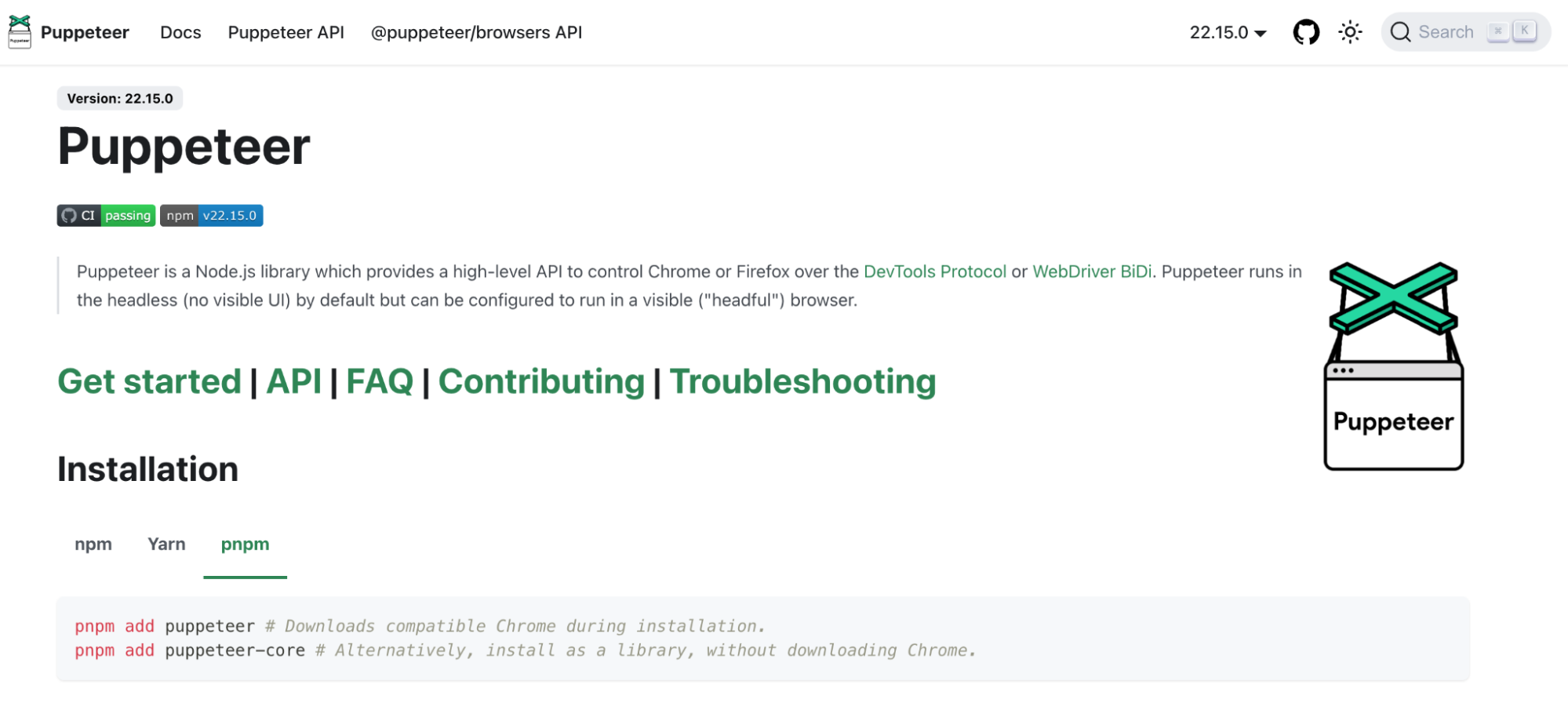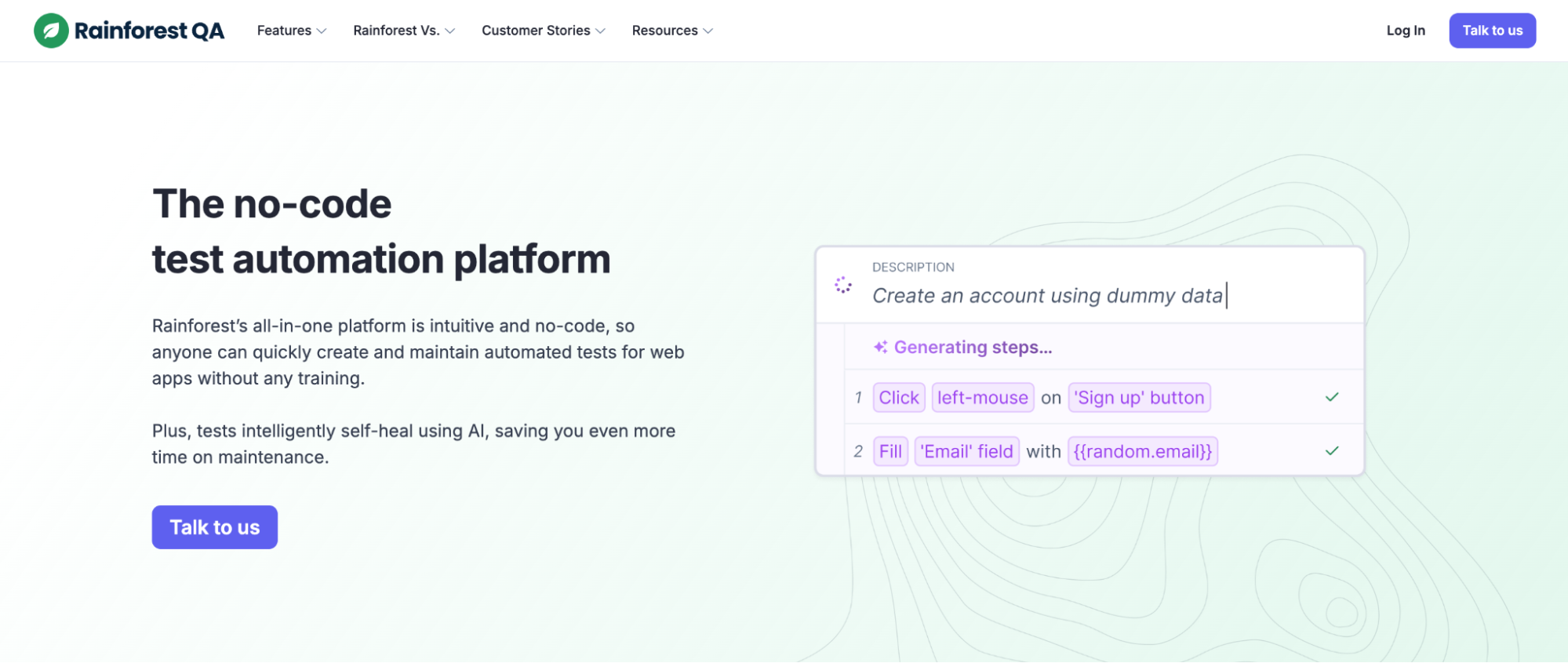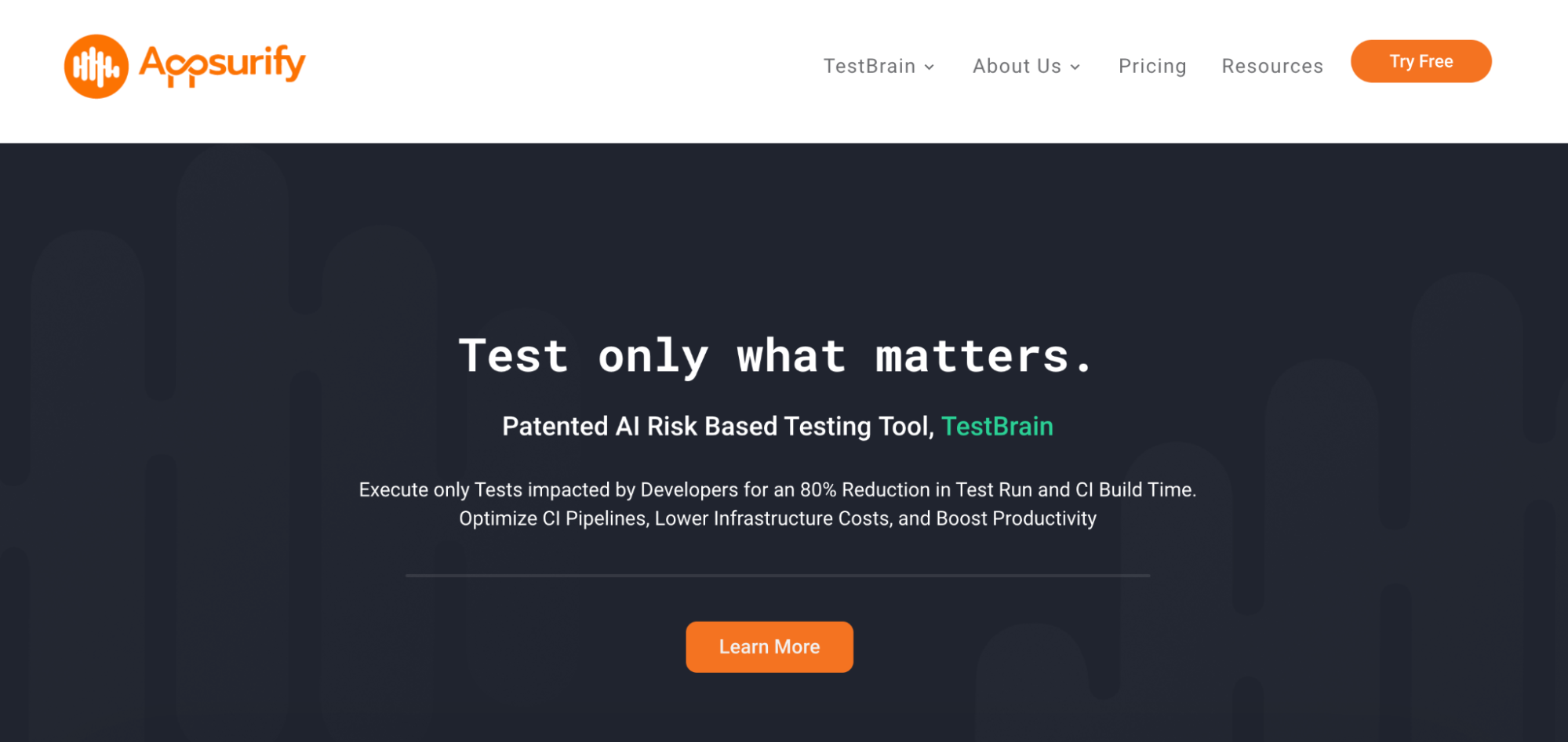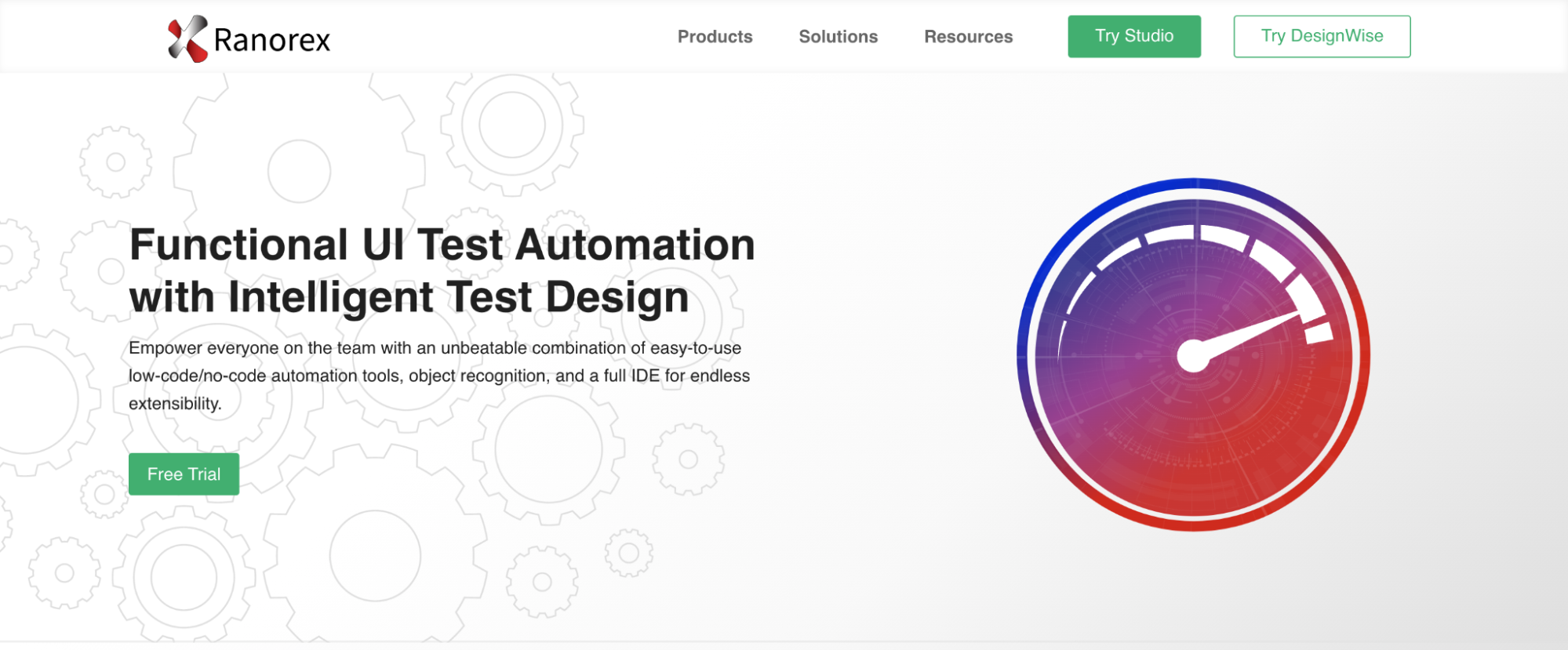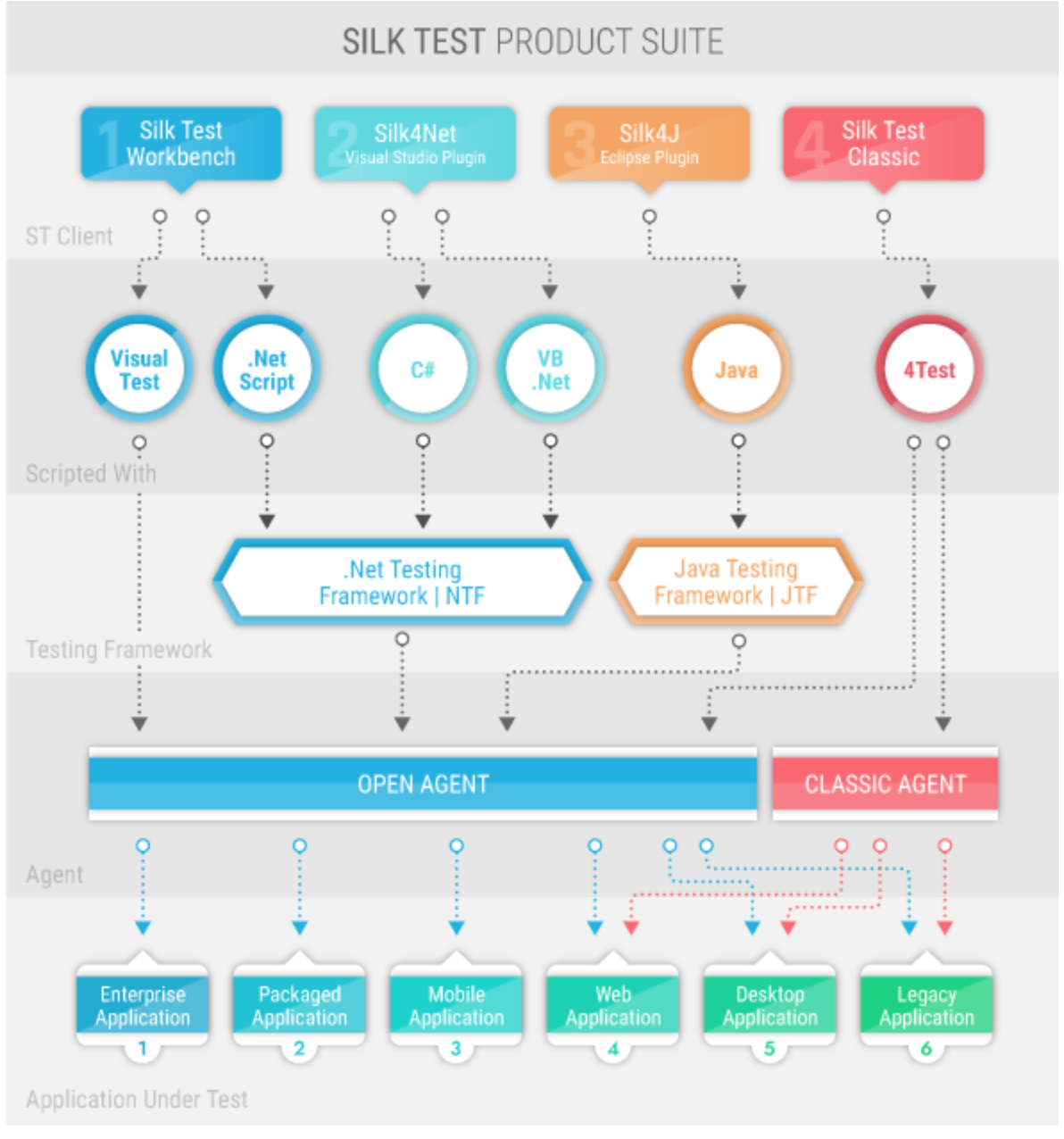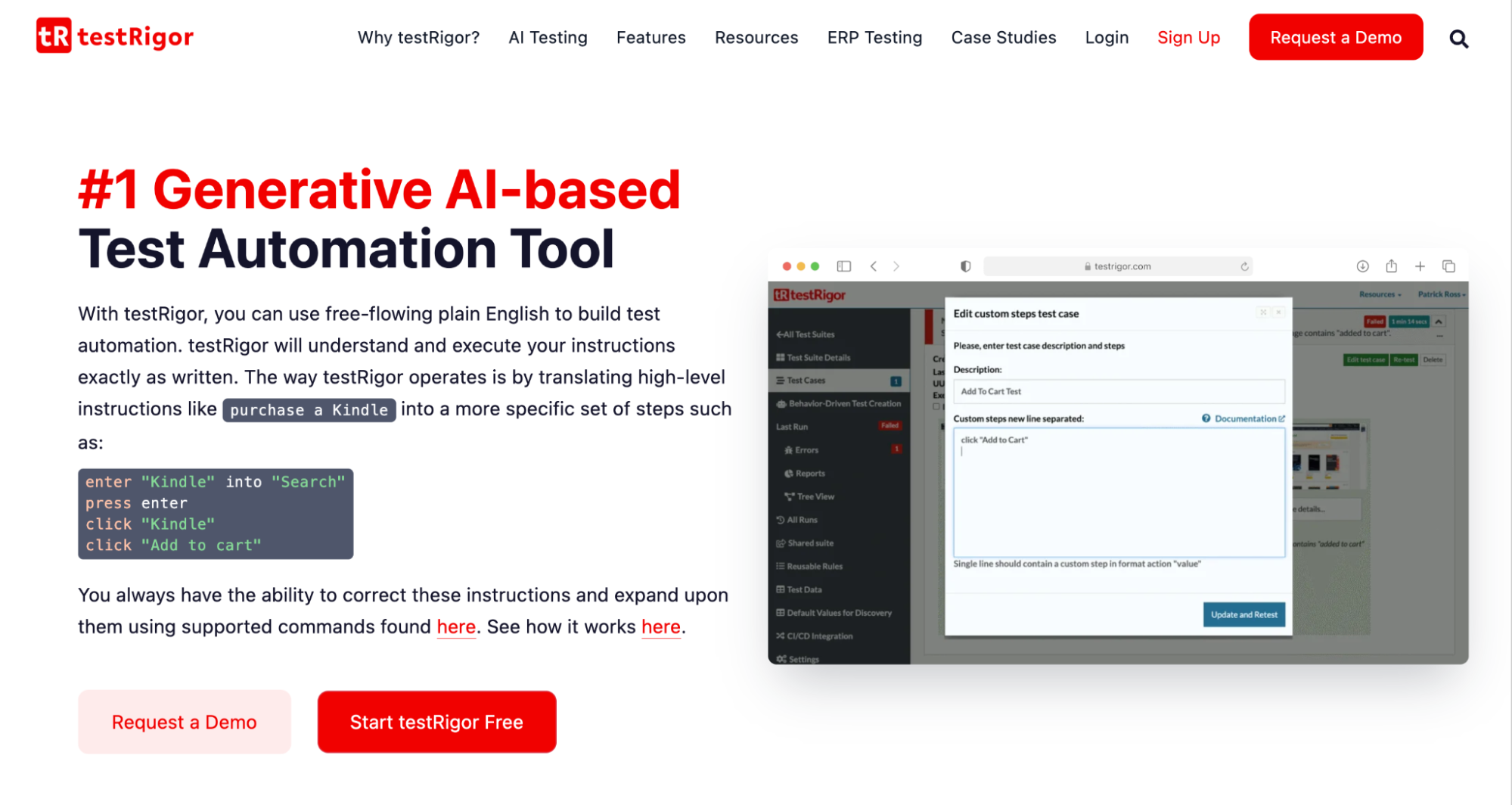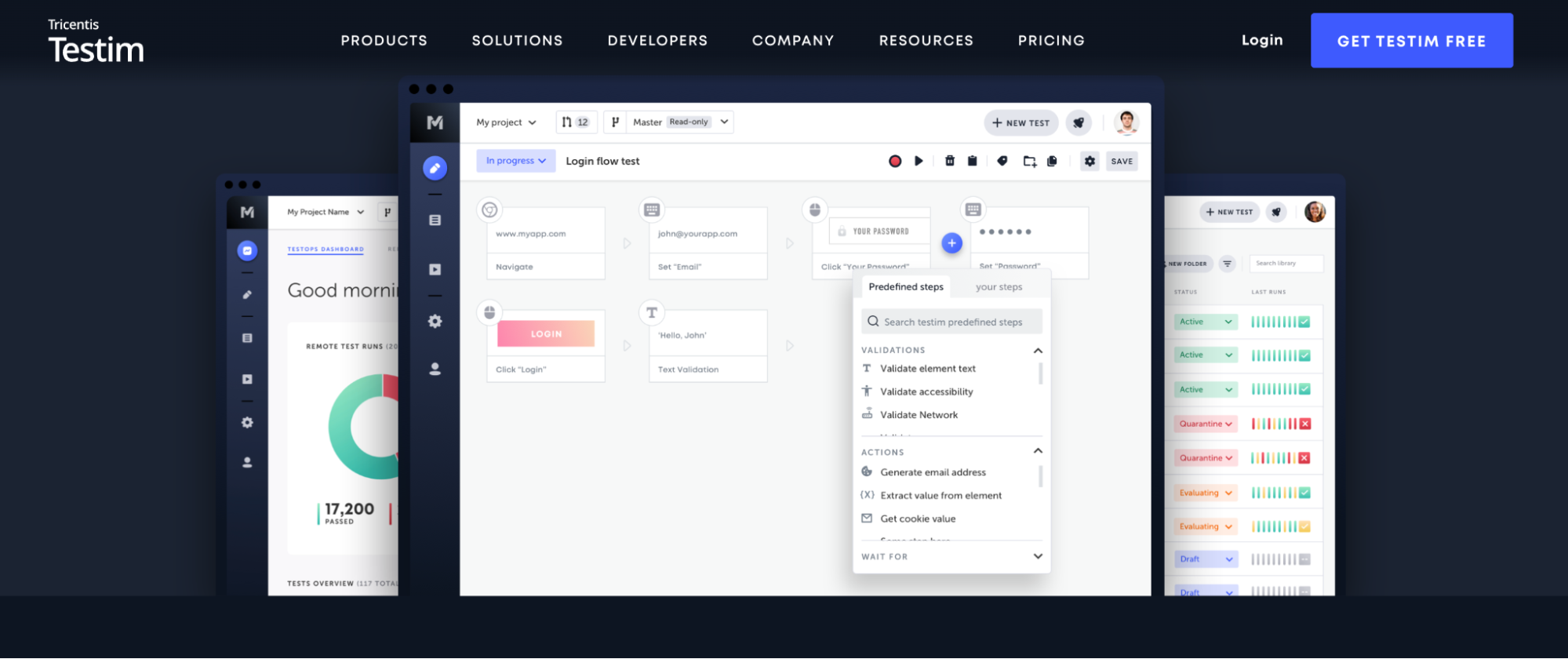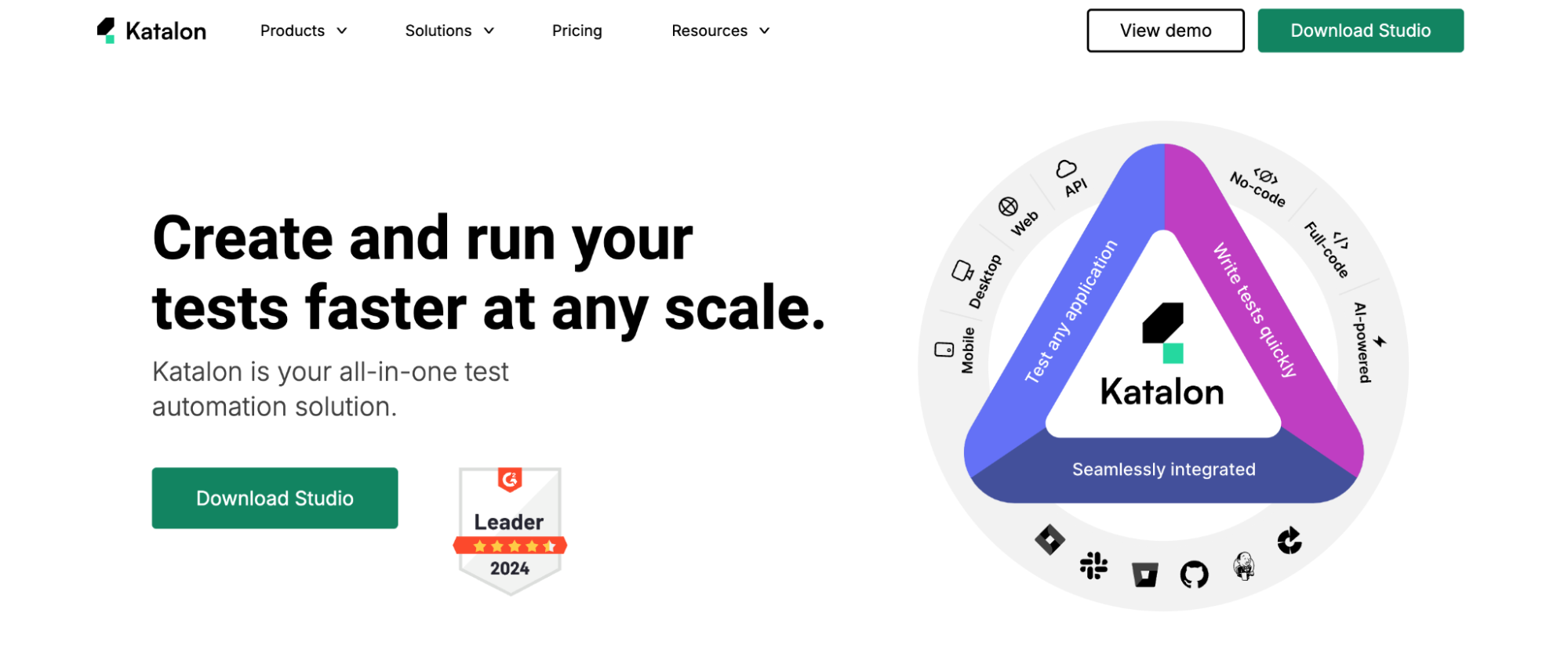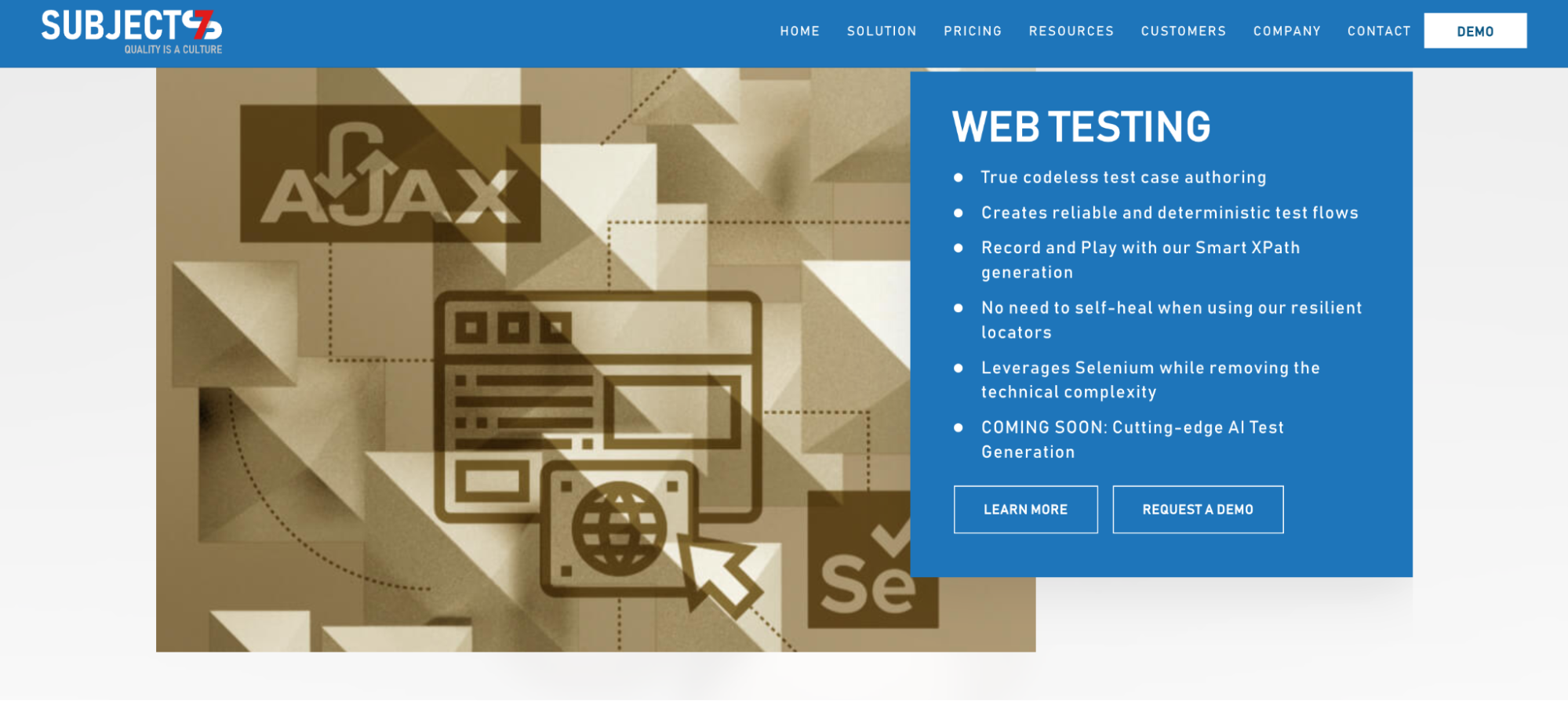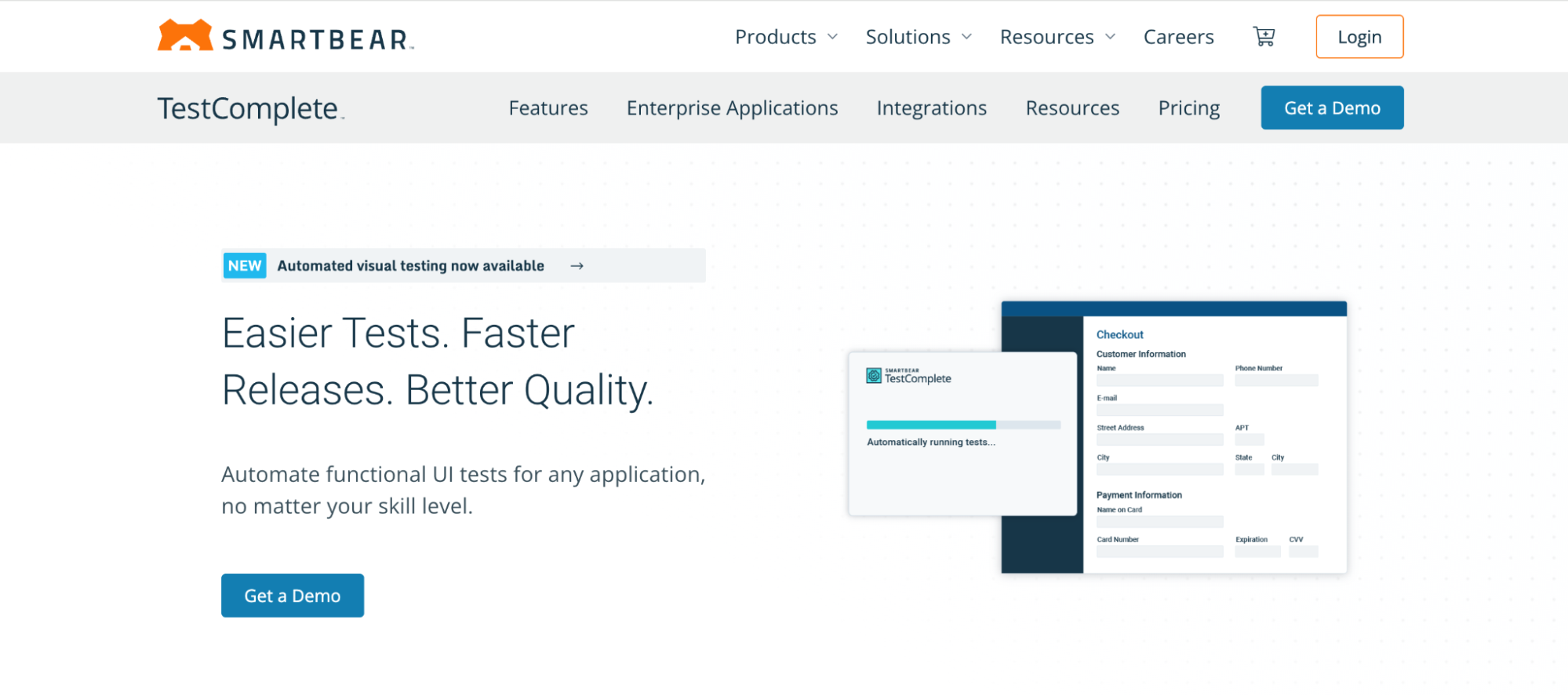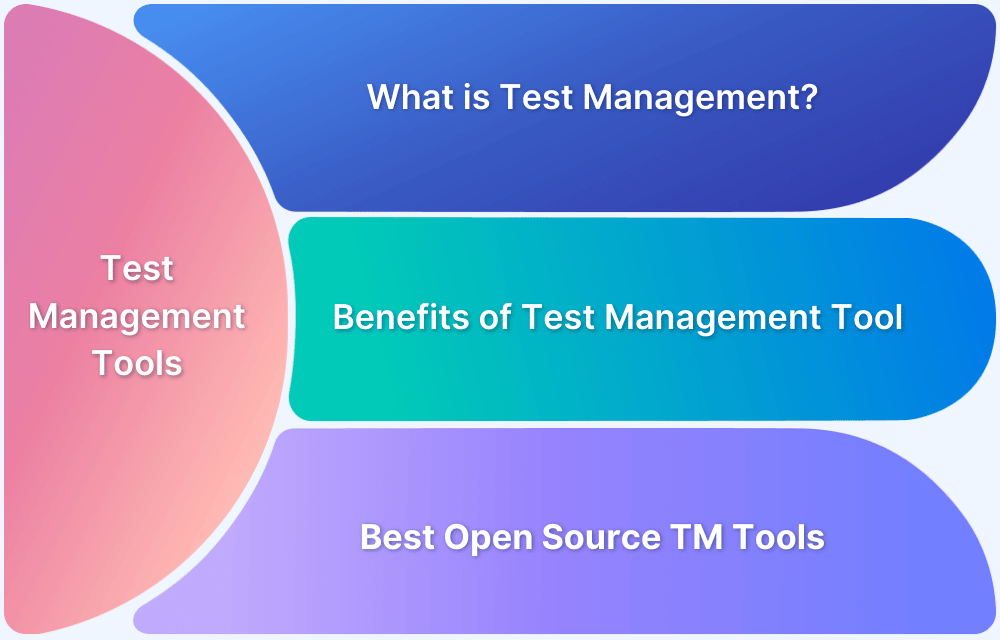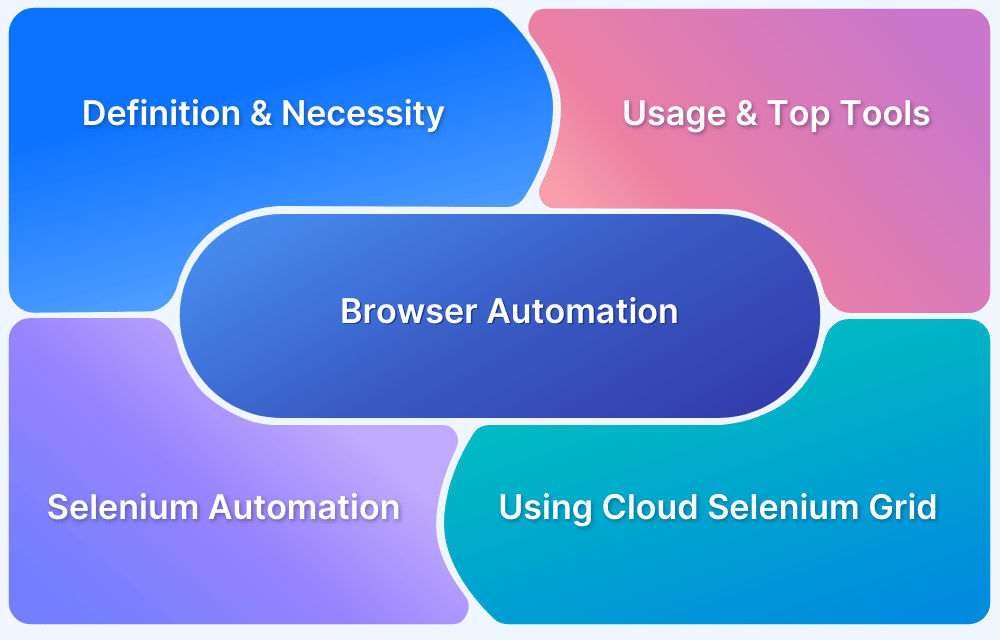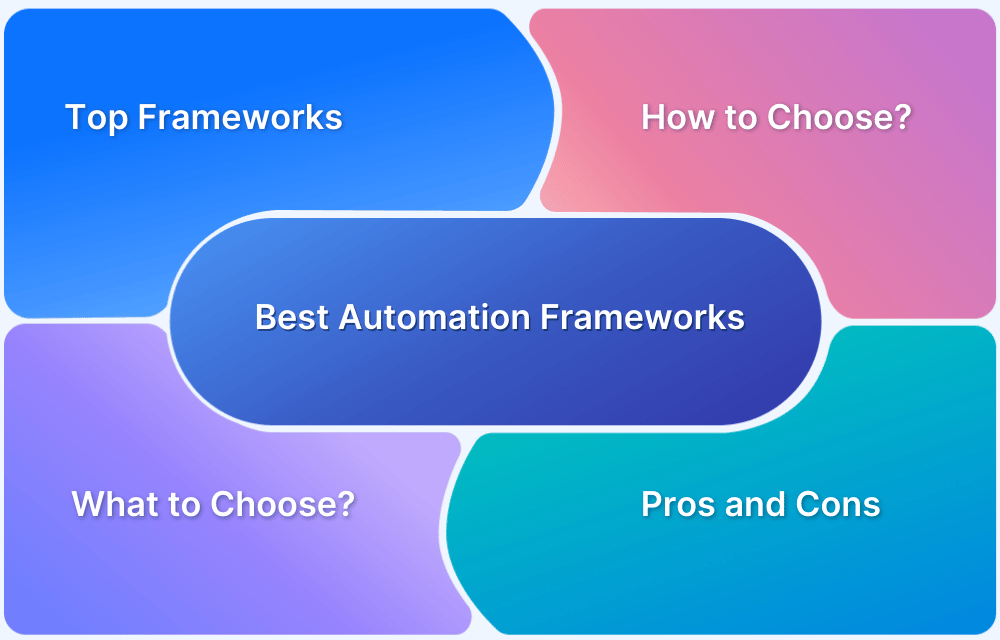Top 20 Regression Testing Tools
By Antra Verma, Community Contributor - August 8, 2024
Regression testing is a crucial part of the software development lifecycle, ensuring that new code changes do not negatively impact existing functionalities. With numerous tools available, choosing the right regression test tool can be challenging. This article will guide you through the top 20 regression testing tools, helping you make an informed decision.
What is a Regression Test Tool?
A regression test tool automates the process of running tests to verify that recent code changes have not adversely affected existing features. These tools help maintain software quality by identifying bugs early in the development process.
How to Choose the Best Regression Test Tool?
When selecting a regression test tool, consider the following factors:
- Ease of Use: The tool should be user-friendly and easy to integrate into your workflow.
- Compatibility: Ensure the tool supports the platforms and technologies you use.
- Scalability: The tool should handle the scale of your testing needs.
- Cost: Consider your budget and the tool’s pricing model.
- Support and Community: A strong support system and active community can be invaluable.
- Functionality and Visual Testing: Ensure the tool tests both the functionality and the visual aspects of your application.
- Simple Test Creation: Look for tools that offer intuitive interfaces and drag-and-drop features to simplify the creation of test cases.
- Self-Healing Capabilities: Choose tools that can automatically detect and adapt to application changes, reducing maintenance efforts.
- Easy Test Execution: Ensure the tool allows for easy execution of tests, whether manually triggered or scheduled and supports parallel execution to save time.
- Error Reporting: Ensure the tool provides detailed and easy-to-understand error reports to help you quickly identify and fix issues.
Read More: Regression testing vs Unit testing
Top 20 Regression Testing Tools
1. BrowserStack
BrowserStack is a comprehensive cloud-based testing platform that allows developers to test their websites and mobile applications across a wide range of real browsers and devices.
It offers robust testing capabilities, including cross-browser, automation, visual, and regression testing. This ensures that applications function correctly and look consistent across different environments.
One of the standout features of BrowserStack is its exclusive tools, Percy, App Percy, and Automate which are specifically designed for visual and regression testing. These tools help in automating regression testing and detecting visual changes in the application, making it easier to maintain a consistent user experience.
Percy: Percy is an all-in-one visual testing and review platform that automates the visual quality assurance (QA) process. Percy excels in visual regression testing, enabling you to detect visual discrepancies by comparing screenshots across different versions of your application.
App Percy: Building on the strengths of Percy, App Percy extends visual regression testing to mobile applications. It provides the same robust capabilities, ensuring your mobile interfaces are flawless across all devices.
Automate: It is a cloud-based testing platform that allows developers to perform automated testing of web applications across multiple browsers and devices. It supports a wide range of test automation frameworks and enables parallel test execution, helping teams to quickly identify and resolve issues by running Selenium and other test scripts in real-world environments.
Here are some of the key features of BrowserStack for regression testing:
- Comprehensive Test Coverage: Cover all critical features, user paths, and edge cases to effectively detect functional issues.
- Automated Regression Suite: Use an automated test suite to identify regressions quickly and reduce manual testing efforts during deployments.
- Data-Driven Testing: Validate application behavior with data-driven tests across multiple data sets for comprehensive input coverage.
- Version Control and Test Traceability: Use version control to manage test cases and link them to code changes for traceability and accountability.
- Visual diffs: Detects, groups, and highlights relevant visual changes across web and native applications.
- Percy visual engine: Uses a computer vision-powered algorithm to reduce noise and streamline image comparisons.
- Responsive diffs: Tests UI across multiple screen widths to ensure responsiveness.
- Snapshot stabilization: Minimizes false positives by freezing animations and managing custom fonts.
- Efficient reviews: Provides side-by-side comparisons and automatic diff matching for easy review of visual changes.
- Commit synchronization: Manages baseline picking, branch logic, and approval carryforwards to keep reviews in sync with workflows.
- Status updates: Offers automatic status updates in pull requests whenever visual changes are detected.
- Cross-browser and platform rendering: Captures visual regressions caused by browser and device rendering subtleties.
- High-speed rendering: Utilizes custom rendering infrastructure for fast and scalable visual testing.
- Parallelization capabilities: Supports complex test suites that run in parallelized CI services or parallel test runners.
- Seamless integrations: Easily integrates with popular CI/CD services and test automation frameworks.
Why is BrowserStack the Best Regression Testing Tool?
BrowserStack excels in regression testing because it can run automated tests on real browsers and devices. This ensures comprehensive coverage and accurate regression detection. Parallel testing allows teams to execute multiple tests simultaneously, reducing test execution time. This speeds up feedback loops significantly.
BrowserStack integrates seamlessly with popular CI/CD pipelines, enabling continuous testing. This ensures that code changes are quickly validated against existing functionalities. It also supports advanced visual testing tools like Percy. Percy identifies visual regressions by comparing screenshots across application versions, maintaining visual consistency and quality.
2. Selenium
Selenium is a widely-used open-source tool for automating web browsers, ideal for regression testing across different browsers and platforms. It provides a robust framework that supports complex test scenarios and is widely adopted in the testing community.
Read More: How to run first Selenium test scripts
Key Features:
- Supports multiple programming languages (e.g., Java, Python, C#) for flexible test script creation.
- Cross-browser testing capabilities to ensure consistency across different environments.
- Integration with various CI/CD tools for automated regression test execution.
Final Thoughts: Selenium is excellent for flexible and comprehensive regression testing. However, it requires expertise to use effectively and can be maintenance-heavy and difficult to scale.
3. Sahi Pro
Sahi Pro is a test automation tool designed for web applications, offering ease of use and strong regression testing features. It is particularly known for its ability to handle dynamic web applications with ease.
Key Features:
- Supports multiple browsers for thorough regression testing.
- Easy scripting with minimal coding, allowing for quick test case updates.
- Robust reporting capabilities for tracking regression test results.
Final Thoughts: Sahi Pro is user-friendly and efficient for web regression testing. However, it may not be suitable for complex scenarios due to limited community support compared to open-source tools.
4. Cypress
Cypress is a JavaScript-based end-to-end testing framework that excels in fast and reliable regression testing for web applications. It provides a modern testing architecture that integrates seamlessly with development workflows.
Key Features:
- Real-time reloads for faster feedback during regression test cycles.
- Automatic waiting for elements, reducing flakiness in regression tests.
- Easy debugging with detailed error messages for quicker resolution of issues.
Final Thoughts: Cypress offers fast and reliable regression testing for JavaScript applications. However, it only supports JavaScript and has limited cross-browser and mobile testing support, which might be a challenge for complex scenarios.
5. Playwright
Playwright is a Node.js library for automating browsers, providing powerful capabilities for cross-browser regression testing. It supports headless testing and can handle modern web applications’ intricacies.
Key Features:
- Cross-browser testing to ensure regression tests cover multiple environments.
- Powerful automation capabilities for complex regression scenarios.
- It supports multiple programming languages for the creation of diverse test scripts.
Final Thoughts: Playwright is excellent for comprehensive cross-browser regression testing. However, it requires knowledge of Node.js, which can be challenging for teams unfamiliar with the environment.
6. Watir
Watir is an open-source tool known for its simplicity, making it suitable for straightforward regression testing tasks. It leverages the Ruby programming language to provide intuitive and human-readable tests.
Key Features:
- Simple and flexible scripting for easy regression test updates.
- Supports multiple browsers to ensure coverage in regression tests.
- Easy to use for beginners, making it accessible for small regression testing teams.
Final Thoughts: Watir is ideal for simple and flexible web regression testing. However, it lacks advanced features and may not be suitable for more complex testing needs.
7. UFT (Unified Functional Testing)
UFT is a commercial tool offering extensive regression testing capabilities across web, mobile, and desktop applications. It provides an all-in-one platform with robust integration features and detailed reporting.
Key Features:
- Supports a wide range of applications for comprehensive regression testing.
- Robust reporting capabilities to track and analyze regression test results.
- Integration with ALM for managing regression testing cycles.
Final Thoughts: UFT provides extensive support for regression testing across applications. However, it may involve a steep learning curve and require significant resources to manage effectively.
8. BugBug
BugBug is a low-code test automation tool focused on ease of use and designed for efficient web application regression testing. Its intuitive interface allows users to quickly build and execute tests without deep technical expertise.
Key Features:
- Easy to use with a visual test editor for quick regression test creation.
- Supports web applications, ensuring consistent regression test coverage.
- Low-code approach simplifies the regression testing process.
Final Thoughts: BugBug is great for quick, low-code regression test creation. However, it offers limited advanced features and might not be the best choice for difficult scenarios.
9. Leapwork
Leapwork is a no-code automation platform that simplifies regression testing with its visual flow builder. It empowers users to create complex automated tests without writing code, catering to both technical and non-technical users.
Key Features:
- Visual flow builder for easy regression test creation and updates.
- Supports multiple applications, enabling comprehensive regression testing.
- Robust reporting capabilities to monitor regression test outcomes.
Final Thoughts: Leapwork offers easy regression test creation with its visual builder. However, it might lack very advanced features and may not suit complex scenarios.
10. Puppeteer
Puppeteer is a Node.js library for automating Chrome and Chromium, ideal for headless regression testing. It provides developers with precise control over browser environments, enabling efficient testing workflows.
Key Features:
- High-level API for efficient automation of regression test scenarios.
- Supports headless and non-headless modes for flexible regression testing.
- Powerful automation capabilities for detailed regression tests.
Final Thoughts: Puppeteer is great for Chrome/Chromium regression testing. However, it is limited to these browsers and requires Node.js knowledge, which may pose a challenge for complex testing environments.
11. Rainforest QA
Rainforest QA is a cloud-based regression testing tool that emphasizes scalability and ease of use. It enables teams to run extensive test suites efficiently and supports a variety of testing scenarios, including manual and automated tests.
Key Features:
- Easy to use with a user-friendly interface for managing regression tests.
- Scalable for large test suites, ideal for regression testing in big projects.
- Supports web and mobile applications for broad regression coverage.
Final Thoughts: Rainforest QA is scalable and user-friendly for regression testing. However, it may not be ideal for every testing situation due to limited customization options.
12. Appsurify TestBrain
Appsurify TestBrain optimizes regression testing with AI-driven capabilities for efficient testing cycles. It intelligently selects the most relevant tests to run, helping teams reduce testing time without sacrificing coverage.
Key Features:
- AI-driven test selection for optimized regression testing.
- Integration with CI/CD tools for automated regression test execution.
- Robust reporting capabilities for analyzing regression test results.
Appsurify TestBrain is efficient with AI-driven regression testing. However, it requires initial setup and might not suit complex testing environments without thorough configuration.
13. Ranorex
Overview: Ranorex is a commercial tool supporting wide-ranging applications, making it ideal for complex regression testing scenarios. It offers a comprehensive feature set that includes cross-platform support and advanced automation capabilities.
Key Features:
- Supports desktop, web, and mobile applications for versatile regression testing.
- Easy to use with a user-friendly interface for managing regression tests.
- Robust reporting capabilities for tracking regression test outcomes.
Ranorex is versatile and user-friendly for regression testing. However, it might involve a steep learning curve and requires significant resources for setup and maintenance.
14. Silk Test
Silk Test is a commercial tool known for its comprehensive regression testing capabilities across multiple platforms. It offers advanced test management and execution features to support complex testing strategies.
Key Features:
- Supports multiple platforms for thorough regression testing.
- Robust reporting to analyze and share regression test results.
- Integration with Silk Central for managing regression testing processes.
Silk Test offers comprehensive regression testing support. However, it requires expertise to manage effectively and may not be the best fit for teams without specialized knowledge.
15. Apache JMeter
Apache JMeter is an open-source tool primarily for performance testing but also supports regression testing through protocol-level testing. It is particularly well-suited for testing web applications and services at scale.
Key Features:
- Supports multiple protocols (HTTP, FTP, JDBC, etc.) for regression testing.
- Easy to use with a graphical interface for setting up regression tests.
- Robust reporting capabilities for detailed regression test analysis.
Final Thoughts: JMeter is versatile and easy to use for regression testing. However, it has limited functional testing support and may require significant resources for large-scale scenarios.
16. testRigor
testRigor is designed to convert manual tests into automated regression tests using AI, making testing accessible. It enables rapid test creation and execution, focusing on high-level test scenarios with minimal coding.
Key Features:
- AI-driven test automation for efficient regression testing.
- Supports multiple platforms for comprehensive regression test coverage.
- Easy to use with minimal coding for creating regression tests.
Final Thoughts: testRigor simplifies regression testing with AI. However, it might not be suitable for highly complex scenarios and offers limited customization.
17. Tricentis Testim
Tricentis Testim is known for organizing regression test cases in a visual editor, enhancing test management. It combines machine learning with robust test automation to streamline the testing process.
Key Features:
- Visual test case management for efficient regression testing.
- Integration with CI/CD tools for automated regression test execution.
- Robust reporting for tracking and analyzing regression test results.
Final Thoughts: Tricentis Testim is efficient for managing regression tests. However, it requires initial setup and configuration and might present challenges in complex scenarios.
18. Katalon Studio
Katalon Studio provides a full toolkit for complete regression test coverage across web, mobile, and API testing. It offers a comprehensive and flexible solution that adapts to various testing needs.
Key Features:
- Supports web, mobile, and API regression testing.
- Easy to use with a friendly interface for creating regression tests.
- Robust reporting for analyzing regression test results.
Final Thoughts: Katalon Studio is user-friendly for comprehensive regression testing. However, it may involve a learning curve for complex scenarios and requires initial setup.
19. Subject7
Subject7 is a cloud-based, codeless regression testing solution offering comprehensive testing capabilities. It provides an all-in-one platform for test automation, execution, and management.
Key Features:
- Comprehensive web application regression testing.
- Cross-browser parallel execution for efficient regression testing.
- Enterprise-grade security for secure regression test management.
Final Thoughts: Subject7 is comprehensive and secure for regression testing. However, it may not be flexible enough for certain advanced testing scenarios and could involve a learning curve.
20. TestComplete
TestComplete is known for its GUI and scriptless regression testing, making it accessible for various users. It supports keyword-driven and data-driven testing, enhancing test coverage and flexibility.
Key Features:
- Supports desktop, web, and mobile applications for versatile regression testing.
- Easy to use with a friendly interface for managing regression tests.
- Robust reporting for tracking regression test results.
Final Thoughts: TestComplete is accessible and versatile for regression testing. However, it might not suit complex testing needs and requires resources for setup and maintenance.
Choosing the Right Tool
Choosing the right regression test tool is essential for maintaining software quality and ensuring a smooth development process. BrowserStack, with its comprehensive features and ease of use, stands out as a top choice for regression testing. BrowserStack Automate allows for efficient regression testing across a wide range of real browsers and devices, ensuring that any code changes are thoroughly validated in real-world environments. Moreover, Percy and App Percy, provide exceptional visual regression testing to ensure your applications look flawless across all platforms.
Together, BrowserStack’s suite of regression testing tools offer a robust solution for maintaining the functional and visual quality of web and mobile applications.
